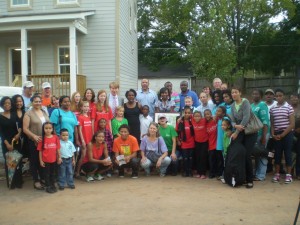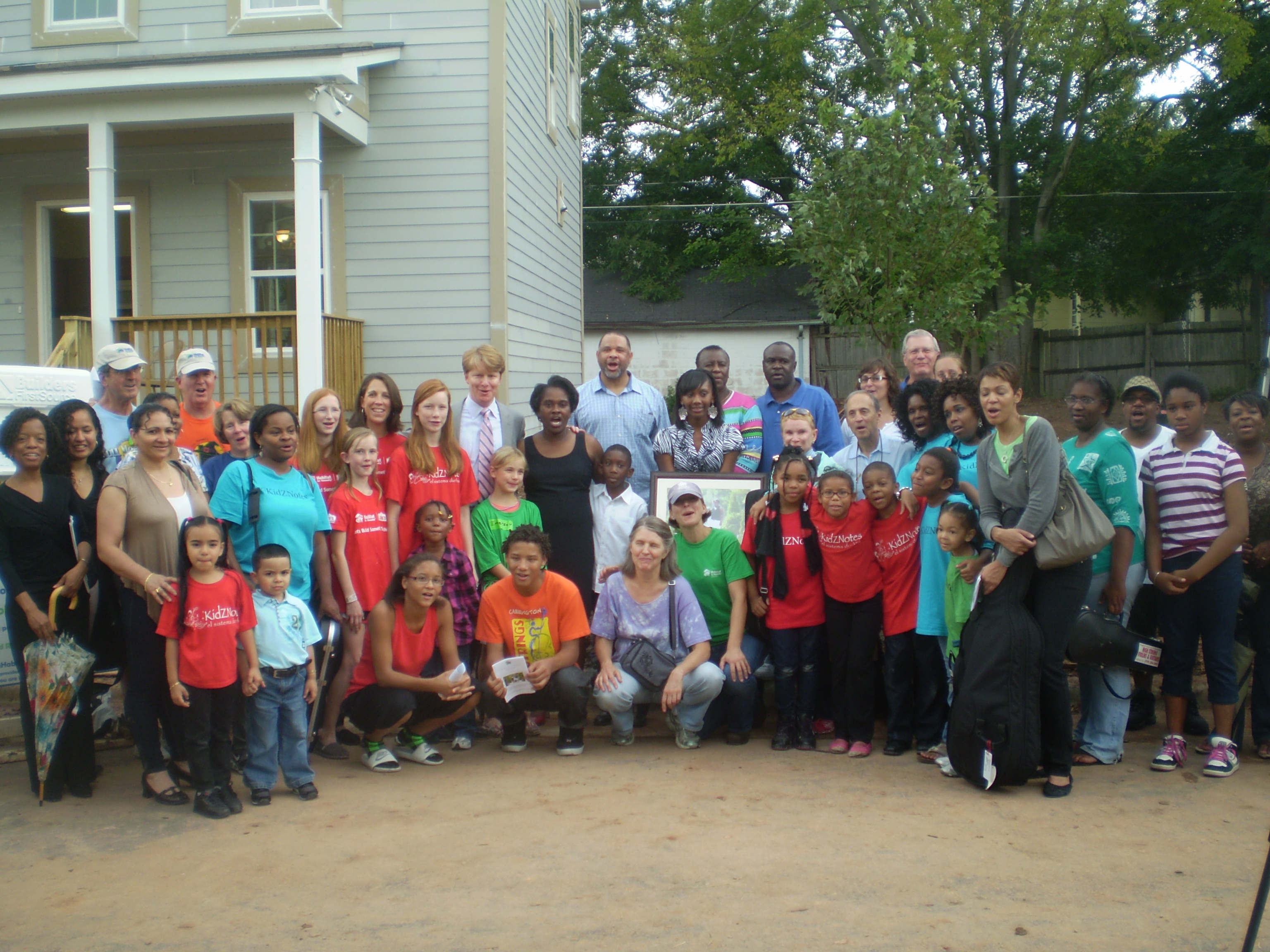So, who’s your funder? And other crazy questions…
Question: What have you learned in the past few years about about obtaining sustainable funding?
In this monthly blog, I’ll start with a question, and take on issues of leadership and relevance in advancing the cause of music and social change. I’d like to start with an example I’m very familiar with – the model of el Sistema I’ve helped build in Durham, North Carolina. KidZNotes was co-founded in 2010 by a group of passionate Durham residents and local arts and education advocates, and I am the founding ED. KidZNotes is inspired by el Sistema, and our vision is to be a catalyst for change through music, building a thriving network of children, partners and families where the passion for music unleashes the human potential to transform lives and communities.
Now entering our 3rd year we have 200 students enrolled, and we provide instruments and 10 hours of classical music instruction every week to children in poverty, building an orchestra of empowerment. We’ve had tremendous success in our growth, and I was recently asked what I’ve learned in the past few years about obtaining sustainable funding for our program. It’s a question that comes up often – “So, who’s your funder?” I’d love to meet the group that has the magic singular “funder” for all that they do.
Since our launch in 2010, I’ve done everything I can to meld KidZNotes with our community. I’ve made KidZNotes the go-to performance ensemble for civic events, for celebrations, and for memorials. I’ve done everything I can to be sure that every entity in Durham (small businesses, restaurants, public schools, charter schools, other non-profits, social enterprises, start-up companies) can’t remember that there ever was a Durham without KidZNotes. Our path to sustainable funding lies in the interconnectedness of our work to the people and businesses of Durham. People are passionate about many things in Durham: education, healthcare, housing, local food, revitalization, and we’ve done our best to connect KidZNotes to social enterprise in our community. I had a donor tell me once that she didn’t support the arts, that instead she was passionate about Habitat for Humanity.

Through Habitat, she could make a physical, palpable difference in an impoverished neighborhood, so that’s where she gave most of her money. However. when we performed recently on the front steps of the opening of a Habitat house in our neighborhood, she gave me a check before we left the site, saying “Oh…I get it. You’re building community, just like we are building this house.” She had recognized our tangible worth in building a family through music as equally valuable to a building a home.
KidZNotes is much more than the music we play, and we’re making ourselves inseparable from the infrastructure of Durham. People who give to the hospital, support KidZNotes because we perform there. People and foundations who support the arts in Durham, support KidZNotes as one of its up-and-coming young orchestras. People who support education support KidZNotes because we’ve made our program an integral part of the public school system. We’re weaving a web of interconnectedness until KidZNotes is seen as a necessity in Durham, and children can’t grow up without it. We do this by creating an excellent program that our students and families tell the world about, and an impressive and inspiring orchestra that people want to have as part of their events. To celebrate their own success, people want to have KidZNotes there. That’s the goal.
Scaling is the next step to creating thriving network of successful programs that are woven by necessity into their communities. We’ll begin a second nucleo in Raleigh in one year, and the same melding with the city will have to happen in order to be successful. Like el Sistema in Venezuela, once a successful model is in place, it can be replicated quickly across cities, and the nucleos (name for the orchestra’s home) can support each other through experiment and change, try and modify, in everything that they do: teaching techniques, curriculum planning, repertoire, staff culture, growth strategies. As nucleos multiply, the model remains the same, and the opportunity to experiment and improve is exponential.
A new challenge for me in involving the community in our program is beginning to think about how to include ALL children, not just those that are marginalized by social and economic circumstances. At the moment, preference for enrollment in KidZNotes is given to families who qualify for free and reduced lunch, and the overwhelming majority of our families (like over 90%) qualify. Any KidZNotes families who do not qualify are in the program because all other applications were vetted and exhausted before they were invited to join, and we had spots available. In developing honest relationships with some of our parents, I’ve learned that their greatest joy is that we take kids on trips OUT of their neighborhood, and widen their world view beyond what their families and neighbors have known. That surprised me, and made me start to think about who our kids are meeting, and who they’ve known up until now. In my own life, music has given me the opportunity to meet people of all races, countries and religions, and I am empowered through personal experience to have opinions and ideas on issues around the world. KidZNotes has achieved the early success of having a reputable program, that middle and upper class families want to pay to be a part of. I’m challenged in considering the advantages of opening up our program to ALL children could provide, including our kids experiencing the benefits of economic, cultural, and racial diversity in the orchestra, and the potential avenue for sustainable funding. Weighted against this is saving those spots for kids who would never have a chance to play in an orchestra like ours, unless they enrolled in KidZNotes. I imagine that finding that compromise could be the key to KidZNotes longevity and continued success.
I’d love to hear your thoughts on sustainable funding models and practices for music and social change, please comment or write me at kywatt@kidznotes.org.
Submit questions you’d like to see discussed in future blogs to kwyatt@kidznotes.org. For January 2013, I’ll take on the question: “In a world of entrepreneurship and self-promotion, how does the musician’s union serve players trying to distinguish themselves from the rest?”


No comments yet.
Add your comment